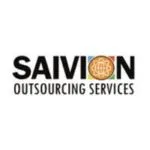
Top Enterprise Software Development Companies
Finding the right enterprise software development company is crucial for businesses seeking to streamline operations, enhance efficiency, and drive growth. To simplify your search, we’ve compiled a list of the top enterprise software development companies renowned for their expertise, innovation, and customer satisfaction. These companies specialize in delivering scalable, customized software solutions tailored to diverse industry needs. With insights into their services, portfolios, and client reviews, this comprehensive guide helps you choose the best partner for your business. Whether you need ERP solutions, cloud integration, or AI-driven applications, these trusted companies have a proven track record of delivering excellence.
List of the Best Enterprise Software Development Companies | Top Enterprise Software Developers in the World

-
Employees: 11 to 50
-
Min. Project amount: $10,000
-
Country: NY, USA

Cyber Nest
-
Employees: 11 to 50
-
Min. Project amount: $25-$49/hr
-
Country: NY, United States
-
Employees: 101 to 250
-
Min. Project amount: $10000
-
Country: Karnataka, India
-
Employees: 11 to 50
-
Min. Project amount: $1,000+
-
Country: Singapore

Telepathy Infotech
-
Employees: 51 to 100
-
Min. Project amount: $5,000+
-
Country: Casper, WY

Onex Software
-
Employees: 11 to 50
-
Min. Project amount: $10,000+
-
Country: İzmir, Türkiye

Saivion India
-
Employees: 11 to 50
-
Min. Project amount: $1,000+
-
Country: New Delhi, INDIA

SAT Microsystems
-
Employees: 251 to 500
-
Min. Project amount: $250,000+
-
Country: Jeddah, Saudi Arabia

Elite M Commerce
-
Employees: 101-250
-
Min. Project amount: Undisclosed
-
Country: NJ, United States

Ecom Buzz
-
Employees: 0 to 10
-
Min. Project amount: $1,000+
-
Country: Kolkata, India
1.What services do enterprise software development companies provide?
Enterprise software development companies specialize in creating robust, scalable, and secure solutions tailored to meet the specific needs of large organizations. Here’s a more detailed look at the key services they provide:
1. Custom Software Development:
Enterprise software companies often build custom applications designed specifically for your organization’s unique processes. These solutions address business challenges, improve efficiency, and are more flexible than off-the-shelf software. Whether it’s a customer relationship management (CRM) system, a supply chain management tool, or an internal workflow management solution, these applications are tailored to your business needs.
2. Enterprise Resource Planning (ERP) Solutions:
ERP systems are integrated platforms that streamline core business processes such as finance, HR, inventory management, and customer relationship management. A custom-built ERP solution allows seamless data flow between departments and reduces manual data entry, ensuring better decision-making and efficiency.
3. Cloud Integration and Development:
Many businesses are transitioning to cloud-based solutions to improve scalability, reduce IT infrastructure costs, and ensure better accessibility. Top software development companies help integrate cloud technologies like Amazon Web Services (AWS), Microsoft Azure, or Google Cloud into your existing systems, or build fully cloud-native applications that support your business operations globally.
4. Artificial Intelligence (AI) and Machine Learning (ML):
AI and ML are powerful technologies for businesses looking to automate processes, gain predictive insights, and optimize operations. Enterprise software companies implement AI-driven solutions for tasks like data analytics, customer service chatbots, fraud detection, and supply chain optimization. These technologies allow businesses to make data-driven decisions and improve customer experiences.
5. Mobile and Web Applications:
As businesses become more mobile-first, custom mobile and web applications have become crucial for providing a seamless user experience. Enterprise software developers build robust mobile apps and responsive websites that enable employees and customers to interact with your business, no matter where they are. These applications can be tailored for specific business functions, such as internal tools, customer-facing apps, or e-commerce platforms.
6. System Integration:
Often, organizations use multiple software tools, and integrating them can be a challenge. System integration services allow different software systems (e.g., CRM, ERP, finance, etc.) to work together seamlessly. Developers ensure that your existing tools are connected, allowing for smooth data exchange and reducing the risk of data silos. Integration can extend to APIs, third-party tools, and IoT devices.
7. Data Analytics and Business Intelligence (BI):
Enterprise software companies also specialize in building solutions that allow businesses to extract valuable insights from their data. Through data analytics and business intelligence platforms, companies can monitor key performance indicators (KPIs), visualize data, and make informed decisions. These systems often use big data technologies, dashboards, and reporting tools that are customized to meet specific business objectives.
8. Maintenance and Ongoing Support:
Post-launch support is essential for ensuring that the software remains operational and continues to meet evolving business needs. Many enterprise software development companies offer ongoing maintenance services, including bug fixes, software updates, performance enhancements, and troubleshooting. This ensures that the solution stays up to date with changing technologies and market demands.
9. Cybersecurity Solutions:
With growing concerns over data breaches and cyber threats, security is a top priority for enterprise software development. Companies provide custom-built security solutions, including secure data storage, encryption, multi-factor authentication, and access controls, to protect sensitive company and customer data. They also conduct regular security audits to ensure compliance with industry standards.
10. Legacy System Modernization:
For businesses that rely on outdated systems, enterprise software companies offer legacy system modernization services. They help migrate or replace old software, upgrading it to newer technologies without disrupting day-to-day operations. This includes re-platforming old applications, improving their scalability, and ensuring they can integrate with newer tools and technologies.
In summary, top enterprise software development companies provide a wide range of specialized services designed to help businesses optimize their operations, improve customer experiences, and drive growth. Whether you need a custom software solution, a full ERP system, cloud migration, or advanced AI capabilities, these companies have the expertise to deliver scalable and secure solutions.
2.How do I choose the right enterprise software development company?
Selecting the right enterprise software development company is crucial to ensuring your project’s success, as it will directly impact your business operations and overall growth. Here are some detailed steps and considerations to help you choose the best partner:
1. Evaluate Experience and Expertise
Start by assessing the company’s experience in the field of enterprise software development. Look for companies that have worked with businesses in your industry, as they will better understand your unique challenges and requirements. Ask about their expertise in the technologies relevant to your project, such as cloud computing, artificial intelligence, ERP systems, mobile app development, or business intelligence solutions.
- Key Considerations:
- Does the company have experience with similar project types?
- Are they familiar with the technologies your business uses or plans to use?
- What industries have they served successfully?
2. Review Their Portfolio and Case Studies
A company’s portfolio is an excellent way to gauge their capabilities. Look for case studies or project examples that demonstrate their ability to handle enterprise-level challenges. A strong portfolio will show their range, from simple solutions to more complex, customized systems. It will also provide insight into the quality of their work, design aesthetics, and user experience.
- Key Considerations:
- Are the projects in the portfolio similar in scope and complexity to your needs?
- Does their work demonstrate innovation and attention to detail?
- Can they showcase client results and business improvements from previous projects?
3. Check Client Reviews and Testimonials
Client reviews and testimonials are one of the most reliable ways to assess a company’s credibility and professionalism. Look for reviews on third-party sites like Clutch, GoodFirms, or Trustpilot to understand how past clients felt about their services. Positive feedback about their communication, reliability, and technical expertise is a strong indicator of a reputable company.
- Key Considerations:
- What do their past clients say about their working relationship?
- Do they have long-term partnerships with clients?
- Are there any recurring issues or concerns raised in the reviews?
4. Assess Their Communication and Collaboration Process
Effective communication is vital in enterprise software development. A company’s approach to communication, responsiveness, and project management can influence the outcome of your project. Ensure they offer transparent reporting and provide regular updates on progress. Companies with strong project management practices and agile development methodologies can ensure that your project stays on track, meets deadlines, and adjusts as needed.
- Key Considerations:
- How quickly do they respond to your inquiries?
- What tools or processes do they use to keep you informed?
- Do they emphasize collaboration and feedback throughout the development lifecycle?
5. Review Their Technological Capabilities and Innovation
The enterprise software development landscape is rapidly evolving, with new technologies and frameworks being introduced regularly. A good development company should stay up-to-date with the latest trends and technologies, such as cloud computing, machine learning, and big data analytics. This ensures they can offer cutting-edge solutions that future-proof your business and remain scalable as your organization grows.
- Key Considerations:
- Are they using the latest technologies and tools in software development?
- Can they help you implement scalable solutions that align with your future needs?
- Do they offer innovative solutions for automation, data analytics, or AI?
6. Understand Their Development Process and Methodology
Different companies may use different development approaches, such as Agile, Scrum, or Waterfall. It’s important to select a company that aligns with your project requirements and company culture. Agile methodologies are popular for enterprise software because they allow for flexibility, faster iterations, and the ability to adapt to changing needs throughout the development process.
- Key Considerations:
- Which development methodology do they use, and how does it fit your needs?
- How do they handle project changes or unexpected challenges?
- Are they open to iterative feedback and adjustments?
7. Budget and Cost Transparency
While you want to choose a company based on quality, it’s also important to ensure that their services fit within your budget. Ask for a detailed cost breakdown and make sure there are no hidden fees. Be wary of companies that provide only vague estimates without specifying the scope of work. A clear understanding of the cost structure will help you avoid budget overruns and ensure the project stays on track financially.
- Key Considerations:
- Are they transparent about pricing?
- Can they provide a detailed proposal with all associated costs?
- Does the company offer scalable pricing that grows with your needs?
8. Post-Development Support and Maintenance
Enterprise software development is an ongoing process, and your relationship with the company shouldn’t end after the launch. Ask about their post-launch support, maintenance, and troubleshooting services. Continuous support is essential for keeping your software up-to-date, resolving any issues that arise, and making enhancements as your business evolves.
- Key Considerations:
- Do they offer long-term support and maintenance?
- How do they handle software updates and system upgrades?
- Are they available for troubleshooting and issue resolution after launch?
By following these steps and thoroughly evaluating potential software development companies, you’ll be able to select a partner that is not only technically capable but also aligned with your business goals. A good enterprise software development company will not only deliver a functional product but also offer valuable insights and innovations to help your business thrive
3.How long does it take to develop enterprise software?
The time required to develop enterprise software can vary significantly based on several factors such as the complexity of the project, the features involved, the development methodology used, and the resources available. Here’s a detailed breakdown of what influences the development timeline:
1. Project Complexity and Scope
The more complex and feature-rich the software, the longer it will take to develop. Simple software solutions with basic features can typically be developed in a few months, while larger, more sophisticated systems, such as Enterprise Resource Planning (ERP) systems or Customer Relationship Management (CRM) software, require more time due to their extensive functionalities and integrations.
- Simple Projects: 3 to 6 months
- Medium Complexity Projects: 6 to 12 months
- Highly Complex Projects: 12 to 24 months or more
2. Development Phases and Methodology
The development process typically involves several phases: planning, design, development, testing, and deployment. The chosen development methodology (e.g., Agile, Waterfall, or Scrum) can also affect the timeline.
Agile Development: Agile methodologies promote iterative development, allowing for faster delivery of smaller components. With Agile, the software can be deployed in phases, and each iteration can be completed more quickly, typically delivering a product in stages. Agile also allows for changes based on feedback, which can sometimes extend the development timeline but ensures better adaptability to client needs.
Waterfall Methodology: This is a more linear approach, where the software is developed in a series of distinct phases. This approach can sometimes take longer to complete since changes can’t be easily integrated once the development process has begun.
3. Feature Requirements
The type of features you need will directly impact the timeline. Basic features like user authentication and simple dashboards will take less time to implement than complex features like real-time data analytics, AI integration, or advanced reporting systems. Integrations with third-party systems (e.g., payment gateways, CRM systems) and custom API development also add complexity and time.
- Basic Features: A few weeks to a few months
- Advanced Features (e.g., AI, Machine Learning, Custom Integrations): 6 to 12 months or more
4. Team Size and Expertise
The experience and skill level of the development team will also influence how long it takes to complete your project. A larger, more experienced team may be able to handle more tasks simultaneously, accelerating the process. However, a smaller team may take longer to complete the same tasks, depending on the project’s scale.
- Larger Teams: Typically complete the project faster, but at a higher cost.
- Smaller Teams: Can take longer, but often provide more personalized service.
5. Testing and Quality Assurance
Testing and quality assurance (QA) are critical steps in the software development process. This phase ensures that your software is free of bugs, works as intended, and is secure. The more thorough the testing process, the longer it will take, but it’s essential to ensure a high-quality, error-free product. Extensive QA can add weeks or even months to the development timeline, especially for complex systems that need rigorous testing to ensure compatibility with various platforms and security standards.
6. Post-Launch Adjustments and Iterations
Even after software is launched, ongoing development may be required to fix bugs, address user feedback, or make improvements. Post-launch iterations are often an essential part of ensuring that the software meets user needs and business goals over time. This can involve adding new features, enhancing performance, or optimizing scalability. The time for these iterations will depend on the initial scope and whether additional features or functionality are required.
Typical Timeline Breakdown:
Small-Scale Software (Basic Tools, Websites, or Apps):
Development Time: 3 to 6 months
These projects are usually less complex and can be completed more quickly. They focus on core functionalities with fewer integrations and features.Medium-Scale Projects (CRM, ERP, Business Tools):
Development Time: 6 to 12 months
These systems typically require more extensive features, integration with third-party platforms, and advanced user interfaces.Large-Scale Projects (Custom ERP Systems, Enterprise Solutions with Multiple Integrations):
Development Time: 12 to 24+ months
Complex systems involving advanced functionalities like AI, machine learning, big data, cloud infrastructure, and multi-channel integrations will take longer to build. These systems often require multiple phases of deployment, testing, and iteration to ensure that all components work together.
Conclusion:
The timeline for developing enterprise software depends on several factors including the project’s complexity, the chosen development approach, team size, feature set, and post-launch support. While small projects may be completed within a few months, larger, more complex enterprise software solutions can take over a year to fully develop and deploy. It’s important to work closely with your development partner to set realistic expectations, ensure proper planning, and continuously monitor progress throughout the project’s lifecycle.
4.What is the cost of developing enterprise software?
1. Project Complexity and Scope
The complexity and scope of the project have the most direct impact on its cost. More advanced systems with a wide range of features, integrations, and customizations require more time and resources to build, thus raising the cost.
Simple Software: Projects with limited features such as small-scale business tools or internal applications will typically cost less.
- Estimated Cost: $50,000 – $100,000
Medium Complexity Software: Systems like custom CRMs, inventory management, or basic ERP solutions, which involve more complex functionalities and integrations, will be more expensive.
- Estimated Cost: $100,000 – $500,000
Highly Complex Software: Large-scale enterprise solutions such as customized ERP systems, AI-powered platforms, and applications with multiple third-party integrations can cost significantly more.
- Estimated Cost: $500,000 – $2M+
2. Features and Functionalities
The more features you require, the higher the development cost will be. Basic features like user registration, login, dashboards, and reporting are relatively inexpensive compared to complex features like real-time data processing, AI integration, machine learning models, and advanced security protocols.
- Basic Features (Authentication, Reporting): Can cost less to develop.
- Estimated Cost: $10,000 – $50,000
- Advanced Features (AI, Real-Time Data Processing, Cloud Integration): These functionalities require specialized expertise and can increase the overall cost of the project.
- Estimated Cost: $100,000 – $500,000 or more
3. Team Size and Expertise
The size and expertise of the development team directly influence the cost. A larger team with specialists in various areas (e.g., backend developers, front-end designers, QA engineers, UI/UX experts) will charge higher rates. Additionally, developers with specific skills in emerging technologies (e.g., blockchain, AI) typically command higher fees.
- Small Teams: If you opt for a smaller team or a less experienced group of developers, the overall cost might be lower, but the risk of quality issues or slower progress could be higher.
- Estimated Cost: $50,000 – $200,000
- Large Teams/Experienced Developers: Highly skilled teams with experience in enterprise-level projects will charge premium rates, but the end result will likely be more polished, scalable, and secure.
- Estimated Cost: $200,000 – $2M+
4. Development Methodology
The choice of development methodology (e.g., Agile, Waterfall) can also impact costs. Agile development is iterative and allows for changes and adjustments throughout the process, but it can sometimes lead to higher costs due to the ongoing feedback loop and development adjustments. Waterfall development, while more rigid, may result in lower overall costs since it follows a linear path with less flexibility for changes once development has begun.
- Agile Development: Typically higher costs because of ongoing sprints, adjustments, and updates during the development process.
- Waterfall Development: Costs can be more predictable but may involve higher upfront planning and less flexibility for future changes.
5. Time to Market
The duration of the project plays a significant role in the overall cost. Projects that require faster delivery may involve additional resources or overtime costs to ensure deadlines are met. Moreover, a shorter timeline may require more developers working in parallel, increasing the budget.
Fast-Paced Projects (Accelerated Delivery): May incur additional costs due to the increased need for manpower, overtime work, and project acceleration tools.
- Estimated Cost Increase: 10% – 30% higher than the standard cost.
Longer Projects (More Time for Development): A project that takes longer to develop might save money in some cases, especially if it’s part of a longer-term engagement or if it’s broken into smaller phases.
6. Location and Development Region
The location of the software development company can significantly influence the overall cost. Developers in North America or Western Europe generally charge higher rates due to their expertise, living costs, and market demand. On the other hand, software development companies in regions like Eastern Europe, India, or Southeast Asia often offer lower rates while maintaining high quality.
North America/Western Europe:
- Hourly Rates: $100 – $250/hr
- Total Estimated Cost for Large Project: $500,000 – $2M+
Eastern Europe/Asia:
- Hourly Rates: $30 – $100/hr
- Total Estimated Cost for Large Project: $150,000 – $1M
7. Maintenance and Ongoing Support
Most enterprise software development companies will offer post-launch maintenance, updates, and troubleshooting as part of their service. While this is essential to keep your software functioning properly, it adds to the overall cost of the project.
- Ongoing Support (Maintenance): Typically involves bug fixes, updates, and feature upgrades post-launch.
- Estimated Annual Cost: 10% – 20% of the initial development cost.
Estimated Cost Breakdown for Enterprise Software Development:
Small-Scale Projects (Basic Tools or Applications):
Estimated Cost: $50,000 – $100,000
Timeline: 3 to 6 monthsMedium-Scale Projects (CRMs, Internal Tools):
Estimated Cost: $100,000 – $500,000
Timeline: 6 to 12 monthsLarge-Scale Projects (Custom ERP, AI, Large Platforms):
Estimated Cost: $500,000 – $2M+
Timeline: 12 to 24 months or more
Conclusion:
The cost of developing enterprise software is influenced by several factors, including project complexity, features, team size, and development methodology. While it can range from a few thousand dollars for basic applications to millions for complex enterprise solutions, it’s essential to work closely with the development company to define clear requirements, create a realistic budget, and set expectations for the timeline. A well-planned and executed project will provide significant value for your business and justify the investment.





